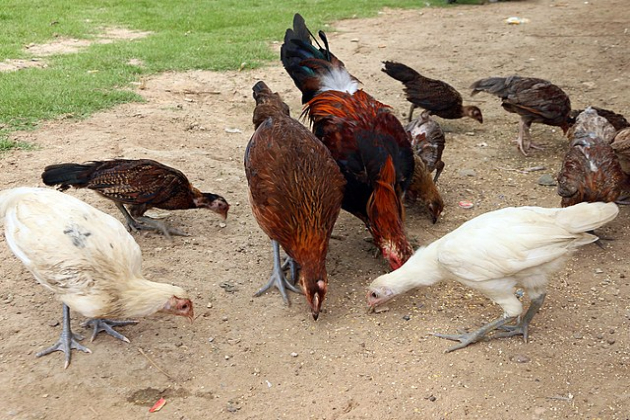Do you know frequent naps and high blood pressure are interlinked? Study reveals
ANI
28 Jul 2022, 06:25 GMT+10

Washington [US], July 28 (ANI): According to new research, napping frequently is linked to increased risks for high blood pressure and stroke.
The findings of the study were published in Hypertension, a journal of the American Heart Association.
Researchers in China examined whether frequent naps could be a potential causal risk factor for high blood pressure and/or stroke. This is the first study to use both observational analysis of participants over a long period of time and Mendelian randomization -- a genetic risk validation to investigate whether frequent napping was associated with high blood pressure and ischemic stroke.
"These results are especially interesting since millions of people might enjoy a regular, or even daily nap," says E Wang, Ph.D., M.D., a professor and chair of the Department of Anesthesiology at Xiangya Hospital Central South University, and the study's corresponding author.
Researchers used information from UK Biobank, a large biomedical database and research resource containing anonymized genetic, lifestyle and health information from half a million UK participants. UK Biobank recruited more than 500,000 participants between the ages of 40 and 69 who lived in the United Kingdom between 2006 and 2010. They regularly provided blood, urine and saliva samples, as well as detailed information about their lifestyle. The daytime napping frequency survey occurred 4 times from 2006 -- 2019 in a small proportion of UK Biobank participants.
Wang's group excluded records of people who had already had a stroke or had high blood pressure before the start of the study. This left about 360,000 participants to analyze the association between napping and first-time reports of stroke or high blood pressure, with an average follow-up of about 11 years. Participants were divided into groups based on self-reported napping frequency: "never/rarely," "sometimes," or "usually." A higher percentage of usual-nappers were men, had lower education and income levels, and reported cigarette smoking, daily drinking, insomnia, snoring and being an evening person compared to never- or sometimes-nappers; When compared to people who reported never taking a nap, people who usually nap had a 12% higher likelihood of developing high blood pressure and 24% higher likelihood of having a stroke; Participants younger than age 60 who usually napped had a 20% higher risk of developing high blood pressure compared to people the same age who never napped. After age 60, usual napping was associated with 10% higher risk of high blood pressure compared to those who reported never napping;About three-fourths of participants remained in the same napping category throughout the study;The Mendelian randomization result showed that If napping frequency increased by one category (from never to sometimes or sometimes to usually) high blood pressure risk increased 40%. Higher napping frequency was related to the genetic propensity for high blood pressure risk.
"This may be because, although taking a nap itself is not harmful, many people who take naps may do so because of poor sleep at night. Poor sleep at night is associated with poorer health, and naps are not enough to make up for that," said Michael A. Grandner, Ph.D., MTR, a sleep expert and co-author of the American Heart Association's new Life's Essential 8 cardiovascular health score, which added sleep duration in June 2022 as the 8th metric for measuring optimal heart and brain health. "This study echoes other findings that generally show that taking more naps seems to reflect increased risk for problems with heart health and other issues." Grander is director of the Sleep Health Research Program and the Behavioral Sleep Medicine Clinic and associate professor of psychiatry at the University of Arizona in Tucson.
The authors recommend further examination of the associations between a healthy sleep pattern, including daytime napping, and heart health.
The study has several important limitations to consider. Researchers only collected daytime napping frequency, not duration, so there is no information how or whether the length of nap affects blood pressure or stroke risks. Additionally, nap frequency was self-reported without any objective measurements, making estimates nonquantifiable. The study's participants were mostly middle-aged and elderly with European ancestry, so the results may not be generalizable. Finally, researchers have not yet discovered the biological mechanism for the effect of daytime napping on blood pressure regulation or stroke. (ANI) Share
Share
 Tweet
Tweet
 Share
Share
 Flip
Flip
 Email
Email
Watch latest videos
Subscribe and Follow
Get a daily dose of Mexico Star news through our daily email, its complimentary and keeps you fully up to date with world and business news as well.
News RELEASES
Publish news of your business, community or sports group, personnel appointments, major event and more by submitting a news release to Mexico Star.
More InformationLifestyle
SectionChinese President Xi takes time to talk to locals
BEIJING, China (Xinhua) -- Where does Chinese President Xi Jinping work? Beyond Zhongnanhai and the Great Hall of the People in Beijing,...
Ireland climbs to 15th in World Happiness rankings
DUBLIN, Ireland: Ireland has risen two places to become the 15th happiest country in the world, according to the World Happiness Report...
InXizang | Nyima: Former serf reflects on life transformation after democratic reform
LNAZE, March 25 (Xinhua) -- Nyima, a former serf who was born in 1952, lives in Quxar Town of Lnaze County, Xigaze City, southwest...
"There is no competition": Prithviraj Sukumaran on 'L2: Empuraan', 'Sikandar' box office clash
New Delhi [India], March 25 (ANI): The much-awaited Malayalam film 'L2: Empuraan', directed by Prithviraj Sukumaran, is set to release...
Gig workers to be covered under Ayushman Bharat, preparations for scheme rollout almost complete: Labour Secretary
By Shailesh Yadav New Delhi [India], March 25 (ANI): Gig workers and their families will be covered under Ayushman Bharat and will...
Bihar: Chirag Paswan, NDA leaders defend 'Saugat-e-Modi' kits distribution; call it 'Sabka Saath, Sabka Vikas'
New Delhi [India], March 25 (ANI): Union Minister Chirag Paswan and senior BJP leaders and NDA allies in Bihar have defended the distribution...
International
SectionLawmakers push for fewer military flights in Washington D.C. area
WASHINGTON, D.C.: Ten Democratic lawmakers in the U.S. House of Representatives have asked the Pentagon to reduce military training...
Delta crash-landing probe finds dangerous descent before touchdown
TORONTO, Canada: An initial investigation into last month's dramatic Delta Air Lines crash-landing in Toronto has revealed that the...
New York court blocks law allowing over 800,000 non-citizens to vote
NEW YORK CITY, New York: New York State's highest court has struck down a law this week that would have allowed over 800,000 legal...
40 times more people killed in Gaza than in the 7 October attack
The death toll in Gaza on the weekend has passed 50,000, local health authorities have reported. What started the carnage was the Hamas-led...
USDA pledges $100 million for bird flu research, vaccine development
WASHINGTON, D.C.: The U.S. Department of Agriculture (USDA) has announced plans to invest up to US$100 million in research to develop...
US HHS orders removal of gun violence public health advisory
WASHINGTON, D.C.: The U.S. Department of Health and Human Services (HHS) has removed a 2024 advisory from its website that called gun...













